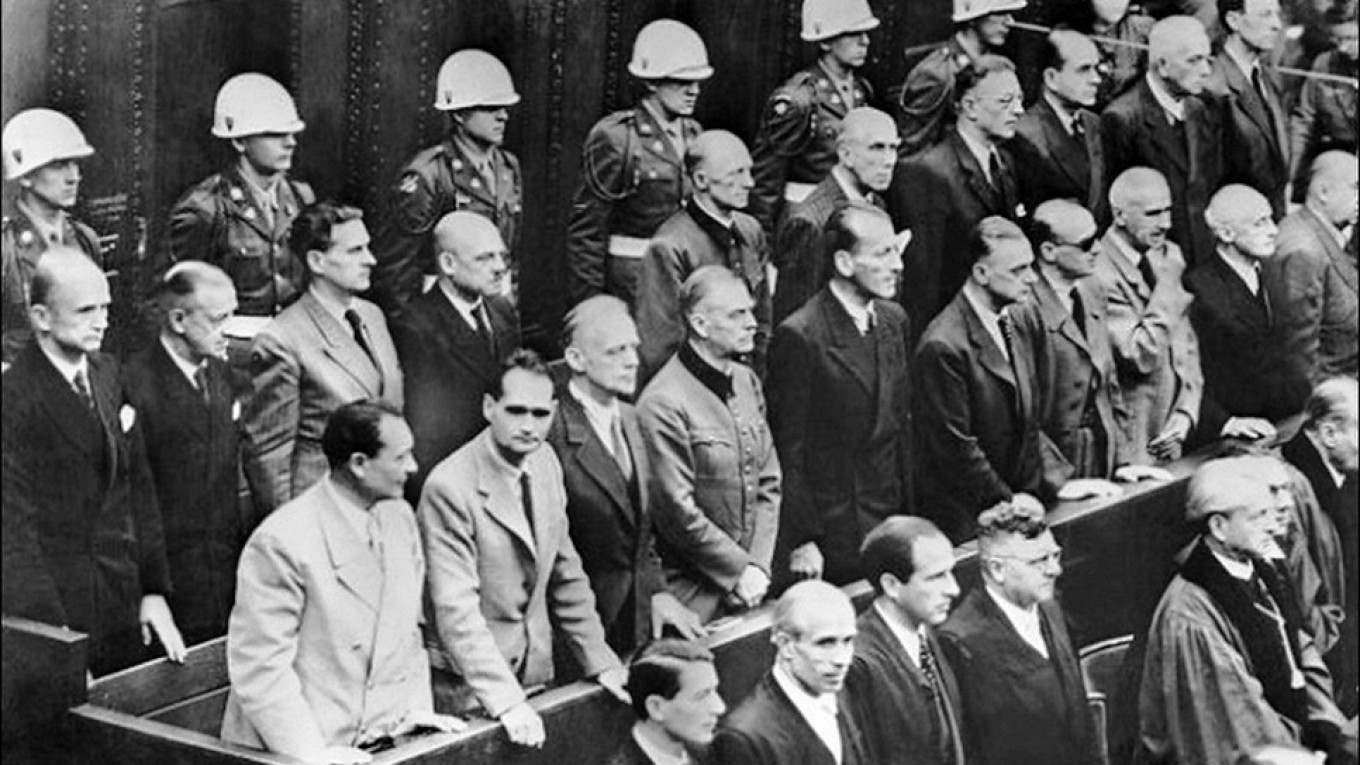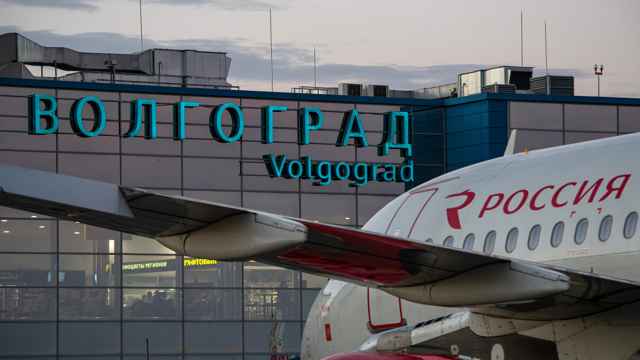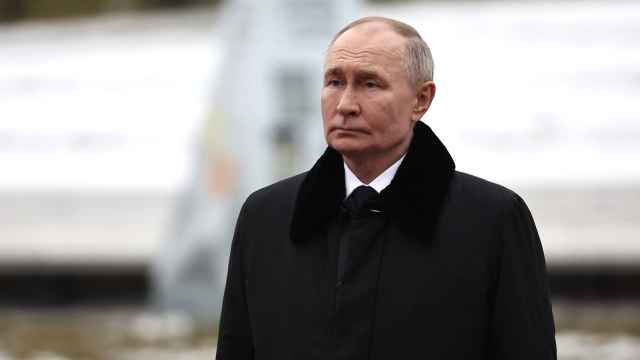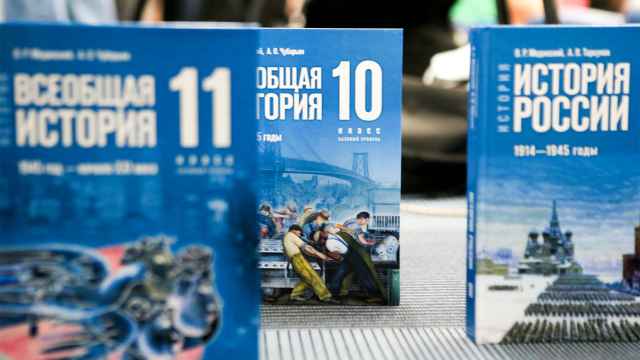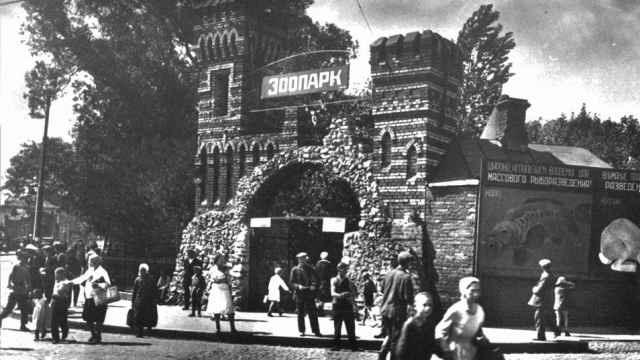The Russian state last week celebrated the 80th anniversary of the Nuremberg Trials at a sprawling “international forum” in central Moscow.
At the event, titled “No Statute of Limitations. Nuremberg. 80 Years,” officials and propagandists staged a glossy spectacle that said less about 1945 than about the political needs of 2025.
In the official narrative, Nuremberg’s history has been molded into a single fantastical image: the Soviet Union as both the main victim the and main victor.
The U.S.S.R. supposedly defended the very idea of putting Nazis on trial, ensured that their leaders received their due at Nuremberg — though some, the story goes, were rescued by “treacherous Western allies” — and today’s Russia faithfully honors that justice, holds new tribunals and battles neo-Nazis.
This is nothing new. In the 2000s, Vladimir Putin spoke of the Nuremberg verdicts as “the supreme historical truth” about World War II. Dmitry Medvedev later declared that the Nuremberg acts were beyond dispute.
In 2014 the Criminal Code was amended so that “rehabilitation of Nazism” was equated with denying facts established by the Nuremberg International Military Tribunal.
The 80th anniversary pushed this line to grotesque new heights. From the rostrum and across servile media came such a torrent of propaganda and historical nonsense that the celebration could fairly claim a record in patriotic idiocy.
The stage set for patriotism
The Nuremberg festivities were held in the Kremlin-adjacent Manezh. The forum unfolded amid the exhibition “The Great Victory. Russia — My History,” a joint brainchild of the Russian Orthodox Church and state bodies.
Some sessions took place against a replica of Courtroom 600, where the Nazis were tried. The set was borrowed from the 2023 feature film “Nuremberg,” in which the tribunal’s work is barely shown; instead, viewers are offered a fictional tale of Nazi underground fighters and heroic Soviet intelligence officers.
The new copy of Courtroom 600, built to shoot a spy movie and now repurposed for a political pageant, serves as a perfect backdrop for Putin-style patriotism.
The 43-page forum program was dominated by politicians, prosecutors, and investigators — apparently the real “experts on putting history on trial.” Officials, propagandists and cultural functionaries gathered to report to one another how they “preserve memory” and promote the “right genocides.”
Only on the second day were a few sessions allotted to historians, largely for appearances and to provide a veneer of “scholarliness.” There was even a presentation of a nationwide historical game, “The Last Tribunal.”
The expert panel “Crimes Against Humanity: Historical Retrospective and Contemporary Legal Practice” was moderated by Yevgeny Spitsyn, a well-known online crank, Stalinist, Holocaust denier and denier of Soviet crimes at Katyn.
Alongside Investigative Committee officials, the panel featured Oksana Kornilova, another Katyn denier who previously worked at the Katyn Museum.
This, too, was a kind of continuity: at Nuremberg, the Soviet delegation tried and failed to pin its own 1940 massacre of Polish prisoners of war on the Nazis.
Who 'invented' Nuremberg?
The ideological refrain of the jubilee was the justification of Russia’s war against supposed “Ukrainian neo-Nazism.” Its historical refrain was that, contrary to hesitant Western allies, it was precisely the Soviet Union that insisted on an international tribunal for the Nazi leadership.
As always, the history is more complicated.
In the autumn of 1942, the first government to circulate a note on collecting information about war crimes and to propose discussing punishment was Britain, with U.S. backing.
A few days later, the Soviet Foreign Ministry responded with its own note calling for a special international tribunal and citing a speech by Franklin Roosevelt demanding that Nazi leaders and their “brutal henchmen” be named, arrested and tried.
The Soviet Union did play a significant role, creating the Extraordinary State Commission to investigate Nazi crimes and pushing for open proceedings while both Churchill and Roosevelt initially favored summary executions or closed military trials.
A Soviet international lawyer developed the concept of “crimes against peace” which the Americans adopted, and the Soviet side participated actively in drafting the tribunal’s Charter.
But the Soviet understanding of “open trials” was rooted in the show trials of the 1930s: theater rather than justice. Trials of collaborators and Nazi criminals in newly liberated territories from 1943 onward took place without independent defense lawyers or any real right to present evidence or call witnesses. The courts were there to decide punishment; guilt was considered “obvious.”
In practice, all the Allied powers contributed to Nuremberg. The tribunal focused above all on “crimes against peace” — the conspiracy to launch a war of aggression — and on war crimes and crimes against humanity, with special attention to the genocide of the Jews. It declared the SS a criminal organization, while carving out exceptions for those conscripted by force who had committed no crimes, and declined to do the same for the Wehrmacht high command, trying leading figures individually.
Today’s myth about Nuremberg as a purely Soviet creation, and as a precedent for Russia’s current wars, depends on erasing all these complications.
What the forum chose to forget
In his greeting to the forum, Putin praised the “historical, propagandistic and memorial” work of its participants, lauding those who “open new evidence of the monstrous crimes committed by the Nazis and their accomplices against the civilian population in the occupied Soviet territories.”
He then claimed that “such crimes have no statute of limitations, and they received an unequivocal assessment 80 years ago precisely from the Nuremberg Tribunal.”
This is false. The tribunal in Nuremberg tried the Nazi leadership. It did not have the authority to try collaborators from occupied countries. It determined the guilt of 22 defendants and a number of Nazi organizations. What kind of “statute of limitations” could there even be?
But for Putin, Nuremberg's relevance lies elsewhere.
“Its norms and principles remain relevant today,” he said. “They help us firmly resist attempts to distort historical facts.”
In other words, the tribunal’s authority should be harnessed to fight the current information war. That Nuremberg condemned crimes against peace and the planning of a war of aggression is quietly brushed aside.
Others at the forum tried to keep up with the historical fiction.
“Nuremberg is becoming a byword for our resolve to defend historical truth in the media and to fight falsifications,” Foreign Ministry spokeswoman Maria Zakharova declared, ignoring Soviet falsifications at Nuremberg itself, including the attempt to blame Katyn on the Nazis.
Deputy State Duma Speaker Irina Yarovaya went so far as to reject the scholarly study of history.
“There is no need to retell history, no need to retell the crimes; it is enough to give people the chance to touch the true source of truth, which was formed not somewhere else, but on German soil,” she said.
She forgot how the Soviet delegation did everything it could to keep the secret protocols of the Molotov-Ribbentrop Pact out of the verdict.
According to Foreign Minister Sergei Lavrov, the Western countries were biding their time after 1939, waiting to see whether Hitler or the U.S.S.R. would come out on top. They allegedly dragged their feet on opening the Second Front and did not want Hitler to win outright because, with the conquered riches of the Soviet Union, his empire would have become “invincible.”
But France and Britain entered the war on Sept. 3, 1939, to support Poland, and the U.S.S.R. invaded Poland on Sept. 17. Hitler attacked Stalin in June 1941, not the other way around.
Elsewhere, Lavrov complained that modern Germans “no longer consider themselves guilty of Nazism,” implying that they should feel permanent guilt, while descendants of Red Army soldiers may imagine themselves eternal victors.
Silences were as telling as the lies. The words “Jews” and “Holocaust” did not appear at all in the forum’s 43-page program. Practically nothing was said in public about the genocide of the Jews, despite the fact that at Nuremberg all sides, including the Soviets, paid special attention to it and the verdict singled out crimes against Jews in a separate section.
Instead, speakers dwelled on the “genocide of the Soviet people” and on supposed failures of Nuremberg to recognize the siege of Leningrad or various forms of “cultural genocide.”
Twisting law into ideology
The task of dressing these distortions in legal language fell to the National Center for Historical Memory under the President, created in 2023 to promote the notion of “genocide of the Soviet people.”
Its head, historian Yelena Malysheva, has become a reliable source of confident misinformation.
“At Nuremberg, nationalist SS formations were not condemned,” she told state media, directly contradicting the text of the verdict, which explicitly included the Waffen-SS and General SS as criminal organizations.
She lamented that “Nuremberg, having concentrated its indictment exclusively on the SS, did not consider as criminal the actions of the German armed forces, the Wehrmacht,” and claimed that the idea of a “pure and innocent” Wehrmacht whose soldiers deserved sympathy was widespread even in the 1990s.
In reality, the “myth of the clean Wehrmacht” took shape in West Germany in the 1950s and collapsed under public debate in the 1990s.
Meanwhile, methodological materials prepared for the anniversary by historian Dmitry Surzhik, an employee of the Institute of World History, carefully rearrange the story so that the Soviet Union appears as the sole engine behind the tribunal and Western states as the main obstacles.
The guidelines begin the history of Nazi crimes with the attack on the U.S.S.R. and omit any mention of Soviet falsification at Katyn.
Western courts that acquitted some defendants or later employed former Nazis become evidence of “support for Nazism.”
In this logic, anyone who did not go underground is retroactively condemned as a Nazi. Guilt is total and formal.
The same template is easily applied at home: anyone who says something against the “special military operation,” or listens to the wrong singer, becomes a foreign agent, terrorist, traitor.
What this memory politics is for
The Nuremberg anniversary saw endless talk of the “forgotten lessons of Nuremberg” — forgotten, of course, in the West. The real lessons being practiced in Moscow are different.
Legal documents are treated as ultimate truth, but only selectively. Facts and passages that support the current line are elevated into sacred scripture, and those that do not — about crimes against peace, about the Holocaust, about Soviet complicity — are ignored or denied.
Condemnation is detached from individual guilt and attached instead to categories. Anyone who “came into contact” with Nazism is guilty. Above all, the tragedy of peoples serves as an alibi for leaders. The “genocide of the Soviet people” is supposed to wash away Stalin’s crimes.
The tragedy of the Donbas, which Putin himself helped organize, becomes the pretext for aggression. Hundreds of thousands of Russians killed in a war of choice are presented as proof that Russia is under attack.
To many observers, it may look as though the Russian state is waging this battle over the past. In a sense, it is. Ever since Putin called the collapse of the Soviet Union “the greatest geopolitical catastrophe of the century,” the regime has looked to World War II and Nuremberg as a source of symbolic capital.
But behind this mythology lies a more immediate, practical morality: a belief that victimhood is an indulgence for crimes, that loud denunciations of Nazism can shield today’s rulers from accountability.
Soviet organizers of mass repression escaped punishment and sent their own prosecutors and judges, hands elbow-deep in the blood of their compatriots, to Nuremberg.
The hope for many in today’s elite is that history will repeat itself — that by wrapping themselves in the symbols of Nuremberg, they will ensure that no tribunal ever judges them.
Against the backdrop of Russia’s full-scale aggression against Ukraine, now nearing its fourth anniversary, the Nuremberg pageant takes on a surreal quality.
The irony is brutal. A significant number of those who applauded themselves in the Manezh would fit easily into the dock of a new international tribunal — tried for the very same crimes against peace and humanity that Nuremberg once condemned.
A Message from The Moscow Times:
Dear readers,
We are facing unprecedented challenges. Russia's Prosecutor General's Office has designated The Moscow Times as an "undesirable" organization, criminalizing our work and putting our staff at risk of prosecution. This follows our earlier unjust labeling as a "foreign agent."
These actions are direct attempts to silence independent journalism in Russia. The authorities claim our work "discredits the decisions of the Russian leadership." We see things differently: we strive to provide accurate, unbiased reporting on Russia.
We, the journalists of The Moscow Times, refuse to be silenced. But to continue our work, we need your help.
Your support, no matter how small, makes a world of difference. If you can, please support us monthly starting from just $2. It's quick to set up, and every contribution makes a significant impact.
By supporting The Moscow Times, you're defending open, independent journalism in the face of repression. Thank you for standing with us.
Remind me later.



